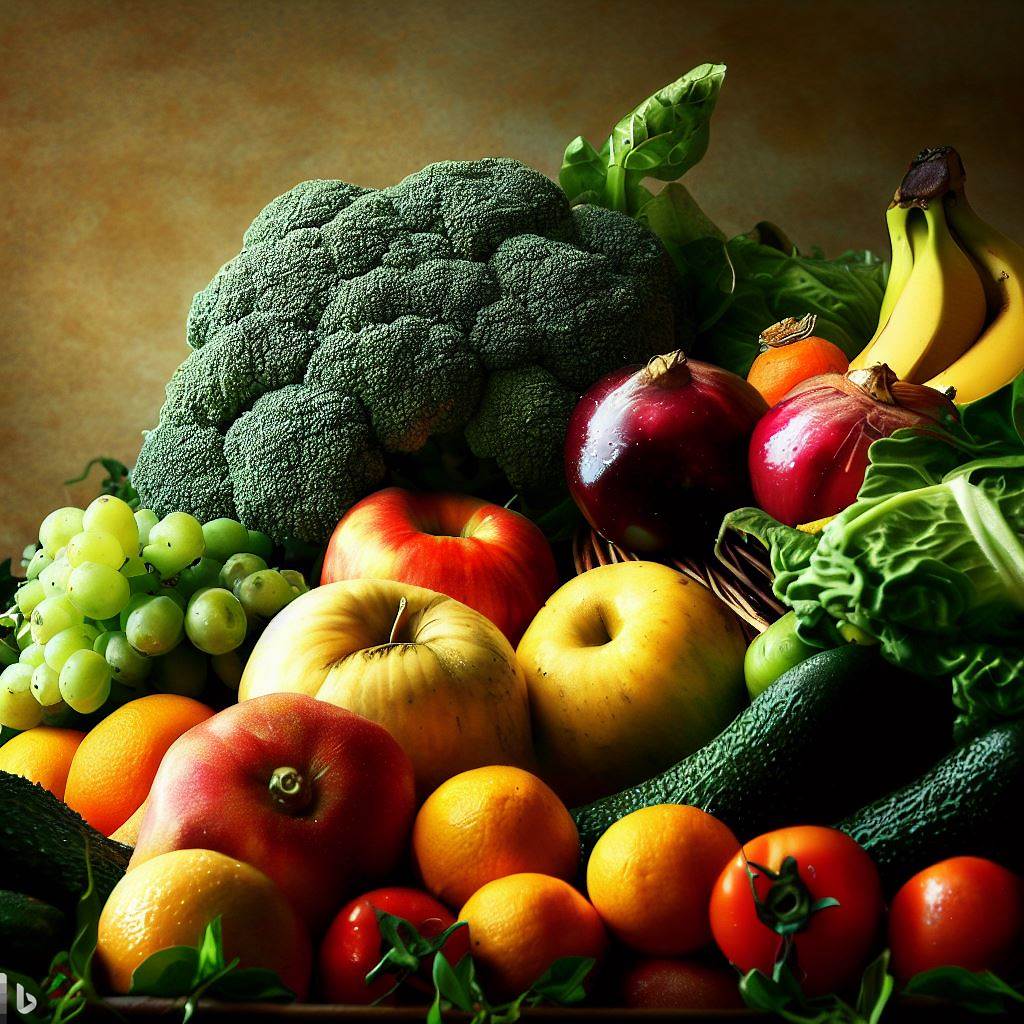
In recent years, there has been a growing interest in organic fruits and vegetables. People are becoming more conscious of their health and the impact of their food choices on the environment. Organic produce has gained popularity due to its numerous health benefits and the assurance of reduced exposure to harmful chemicals. In this blog post, we will explore why organic fruits and vegetables are important for maintaining a healthy life.
Avoidance of Harmful Chemicals:
Conventional farming methods involve the use of synthetic pesticides, herbicides, and fertilizers to protect crops from pests and increase yields. Unfortunately, these chemicals can leave residue on the produce we consume, potentially posing health risks. Organic farming, on the other hand, relies on natural methods such as composting, crop rotation, and biological pest control. By choosing organic, you can significantly reduce your exposure to harmful chemicals and their potential adverse effects on your health.
Higher Nutritional Value:
Numerous studies have shown that organic fruits and vegetables often contain higher levels of essential vitamins, minerals, and antioxidants compared to their conventionally grown counterparts. This can be attributed to the healthier soil conditions and natural farming practices employed in organic agriculture. Consuming nutrient-rich organic produce can enhance your overall well-being, strengthen your immune system, and lower the risk of chronic diseases.
Reduced Antibiotic Resistance:
In conventional farming, antibiotics are commonly used to promote growth and prevent disease in livestock. This practice contributes to the rise of antibiotic-resistant bacteria, which can pose a significant threat to human health. By opting for organic fruits and vegetables, you indirectly support sustainable agriculture that prohibits the routine use of antibiotics. This choice helps reduce the risk of antibiotic resistance, safeguarding the effectiveness of these crucial drugs for treating infections.
Environmental Impact:
Choosing organic produce is not only beneficial for personal health but also for the environment. Organic farming practices prioritize soil health, water conservation, and biodiversity preservation. By avoiding synthetic chemicals and genetically modified organisms (GMOs), organic farming minimizes soil and water pollution, protects wildlife habitats, and promotes sustainable farming systems. By supporting organic agriculture, you contribute to a healthier and more sustainable planet for future generations.
Enhanced Taste and Flavor:
Organic fruits and vegetables are often praised for their superior taste and flavor. Since organic farmers focus on building nutrient-rich soil, their produce tends to be more vibrant, flavorful, and aromatic. The absence of synthetic chemicals also allows the natural flavors and aromas to shine through, providing a more enjoyable culinary experience. By savoring the deliciousness of organic produce, you’ll be motivated to incorporate more fruits and vegetables into your diet, leading to a healthier lifestyle.
GMO-Free:
Organic farming prohibits the use of genetically modified organisms (GMOs). GMOs are plants or animals whose genetic material has been altered through genetic engineering techniques. By choosing organic produce, you can be confident that you are consuming food in its natural and unaltered state. This can provide peace of mind for individuals who prefer to avoid GMOs due to potential health and environmental concerns.
Support for Local Farmers:
Organic farming often emphasizes local and small-scale agriculture. By purchasing organic fruits and vegetables, you support local farmers who follow sustainable and environmentally friendly practices. This, in turn, helps to strengthen local economies and promote community resilience. Additionally, buying locally grown organic produce reduces the carbon footprint associated with transportation and supports the preservation of farmland in your region.
Allergen Reduction:
Conventional farming practices sometimes involve the use of chemical pesticides and fertilizers that can leave residue on produce. For individuals with sensitivities or allergies, this residue can trigger adverse reactions. Organic fruits and vegetables, grown without synthetic chemicals, may be a suitable choice for those seeking to reduce exposure to potential allergens and minimize allergic reactions.
Ethical Animal Welfare:
If you choose to consume organic meat, dairy, or eggs, you can also support ethical animal welfare practices. Organic animal products come from animals that are raised in humane conditions, with access to outdoor areas, organic feed, and without the routine use of antibiotics or growth hormones. By opting for organic animal products, you can align your dietary choices with your values of animal welfare and responsible farming practices.
Long-term Health Benefits:
While the immediate health benefits of consuming organic fruits and vegetables are evident, there is also growing evidence to suggest that a diet rich in organic produce may have long-term health benefits. Some studies have indicated that an organic diet may reduce the risk of certain cancers, neurodegenerative diseases, and developmental disorders. While more research is needed, the potential health advantages of choosing organic cannot be overlooked.
Incorporating organic fruits and vegetables into your diet is a conscious choice that can have a significant impact on your health and the environment. By opting for organic produce, you minimize exposure to harmful chemicals, enjoy higher nutritional value, contribute to antibiotic resistance reduction, support sustainable agriculture, and indulge in delicious flavors. Embrace the benefits of organic farming and prioritize your well-being by making organic fruits and vegetables a regular part of your healthy lifestyle.









